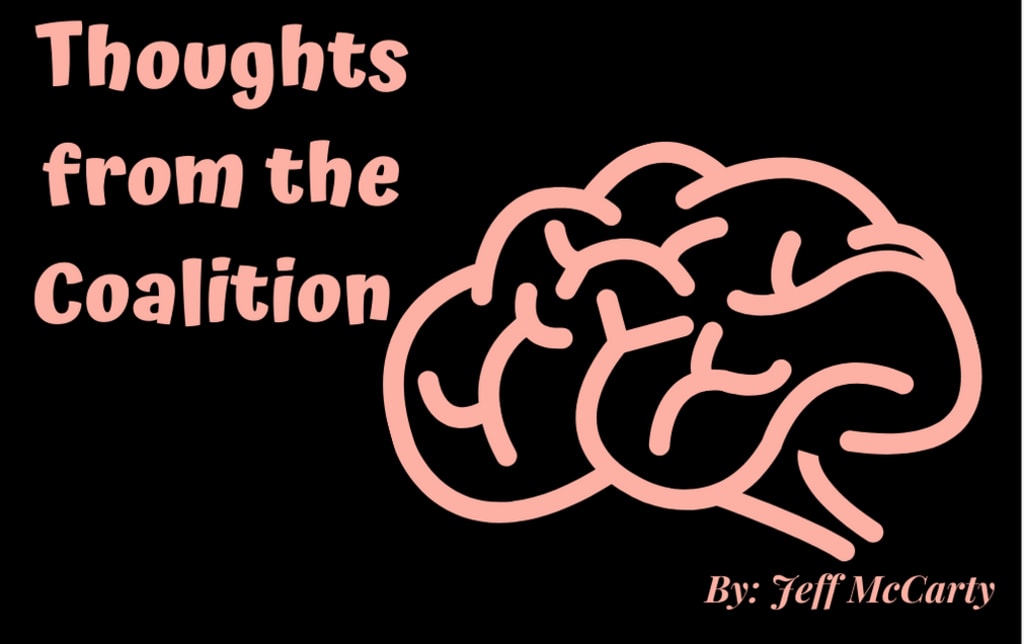Classifications and Categorizations of Chaos
Thoughts from the Coalition

As human beings, we live in a continuum of revolving questions and answers. We venture out, searching for answers to questions we have and as we find those answers, we begin to think of new questions. Our questions as human beings can be constituted by two functions, curiosity, and a need to solve a problem. For example, one may look at a cloud and question what a cloud is and made out of, this would be a question rooted in one’s curiosity. While another question we may have to ask ourselves is where can I find my next meal. Questions of this nature would derive from a need to solve a problem. As the HCRC, we believe that continuing the existence of our species is the highest priority that we should hold, and because of this priority, we must fixate on answering questions that allow us to solve the problems that threaten our existence as a species.
Attentively focusing on solving the problems that threaten the existence of humanity can be daunting due to an ever-expanding list of problems that are threatening our existence as a species. Finding a clear path to developing solutions will be determined by how we look at the problems to begin with. As individuals, we can analyze the best practices of the most successful human beings and find one similar tactic that most use to organize and understand the correlation between their success and the day to day activities that must be done to achieve their goals. This tactic is the practice of keeping a to-do list, of some sort and prioritizing the items contained on said list. As the HCRC, we believe the human species needs to adhere to the same practices within the running of our global human civilization to ensure we can solve the problems that face our existence as humanity.
To solve our problems as a species, we must understand the problems themselves. When contemplating the magnitude of problems that face our species we can think of many different types of problems. With a variety of problems facing us as a species, it is hard to know which problem should be attended to first. The question of which problem to solve first can be answered with classification, categorization, and prioritization methods. We must understand as a species we cannot afford to work on just one problem at a time. Many of the largest threats to continuing the existence of humanity will take generations upon generations to solve. The added benefit value for a system of classifying, categorizing, and prioritizing the problems that face our species, is the better we can understand and prioritize the need to solve a problem the more likely we will be to allocate resources towards finding solutions for that problem. For if we don’t prioritize the problems in the first place, we won’t have a good sense of the problems that face us and the potential timetable for when any problem can turn catastrophic.
As the HCRC, our vision of the global human civilization that we could one day exist within is based on the ability to empower every human being to live their life to the fullest extent as long as it doesn’t infringe on any other human being’s ability to live their lives in liberty. With this vision guiding us, we can begin to analyze the systems, institutions, belief structures of the human species, and the universe itself in search of any problems that can threaten humanity’s existence. Due to the massive length of this list, we cannot confidently guarantee we will ever comprehensively know every single problem that threatens humanity at every single moment. At any moment in time, events can be occurring that will cause new problems to arise in a future duration of time. This entails that the monitoring and analyzing, of our systems, institutions, belief structures, and the universe we exist within for problems that threaten humanity’s existence will be a continuous process that our species must make a routine.
Although a list of all problems that face humanity can be seen as an impossible task to complete in itself, we must understand that the goal of creating an on-going repository of problems that threaten humanity’s existence is to create awareness in regards to problems both new and old. As we begin to gather problems and tangibly list them in a repository of this nature, we can begin to focus, not just on the problems in a doleful manner, but the search for potential solutions that could reduce or eliminate the threats spawned from those problems.
Creating and refining a repository of this nature is paramount if the human species is to achieve a global human civilization that empowers a life of mutual respect for every human being’s privileges of existence. As the HCRC, the process of creating a repository of the problems that threaten humanity’s existence begins by organizing the problems that threaten humanity’s existence into two main categories. These categories help in determining where these problems originate from which in turn also helps in determining how we may go about finding solutions to these problems. Join us next Friday, as the repository of humanity’s problems develops and we unveil these categories.
Until next time, I am Jeff McCarty and I just want to thank you for your time in reading. If you enjoyed this post, please share this with someone you think would enjoy it. Find the Human Civilization Reformation Coalition on Facebook for more content as well. Looking forward to seeing you next post. Thanks again.
About the Creator
Jeff McCarty
I create content for a nonprofit organization, called the Human Civilization Reformation Coalition. Our focus is positively progressing humanity. All tips go towards the nonprofit organization, and the further creation of content.






Comments
There are no comments for this story
Be the first to respond and start the conversation.